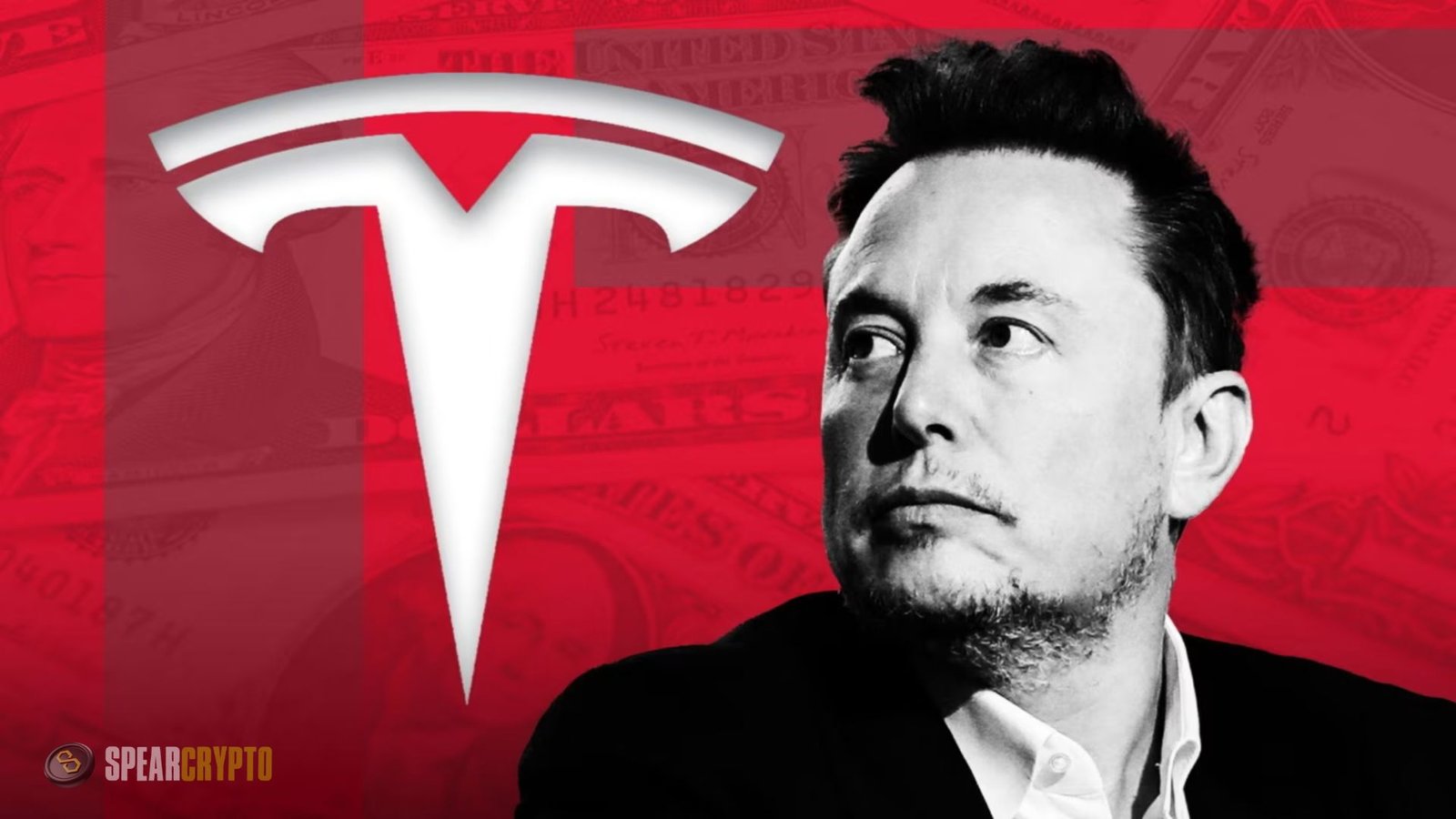
Scams in the dynamic cryptocurrency market have evolved to target inexperienced and seasoned investors. Using Tesla and CEO Elon Musk’s identities to deceive people into falling for fraud has become one of the most infamous scams. Learn more about the Tesla crypto scam—where it came from, how it works, and how to avoid falling victim to it—in this comprehensive article.
The Origins of the Tesla Crypto Scam
Phishing schemes like the Tesla crypto scam exploit the public’s fondness for Elon Musk and Tesla to get victims to transfer cryptocurrency to fake accounts. The hoax started gaining momentum in 2020 when Bitcoin’s price skyrocketed and cryptocurrencies became more popular. Scammers have become more crafty in their attempts to pass themselves off as legitimate, which makes it harder for unsuspecting victims to see the con before it’s too late.
The Appeal of Tesla and Elon Musk
Elon Musk and the electric vehicle giant have long been linked to cutting-edge innovation and technological prowess. Particularly on Twitter, where he regularly discusses tech, space, and cryptocurrency, Musk has a huge following among social media users. Everyone knows that Musk significantly impacts the cryptocurrency market; just one tweet from him can cause Bitcoin or Dogecoin prices to skyrocket or crash.
Scammers use this clout by posing as Tesla or Musk endorsers in online ads, social media accounts, and websites. By leveraging Musk’s status as a tech innovator, these frauds frequently offer investors tremendous returns on cryptocurrency investments. The sad truth is that many individuals fall for these scams because they are so excited to take advantage of what seems like a once-in-a-lifetime chance.
How the Tesla Crypto Scam Works
The Tesla crypto scam typically follows a similar pattern, with slight variations depending on the platform and the sophistication of the scammers. Below is a breakdown of the most common methods to perpetrate the scam.
Fake Social Media Accounts
Making fake social media accounts that look like Elon Musk’s or Tesla’s official accounts is a common tactic in the Tesla crypto scam. These accounts are frequently established with little changes to the username, giving the impression that they are authentic. An account may say “@EIonMusk” rather than “@ElonMusk,” using an uppercase “I” for the lowercase “l.”
Scammers will set up a phoney account and then use it to promote a coin giveaway or investment opportunity that doesn’t exist. They could argue that Tesla is celebrating a milestone or holding a promotional event by giving out Bitcoin or Ethereum. To validate their wallet address, victims are asked to transmit a tiny quantity of cryptocurrency by clicking on a link in the posts that leads to a phishing website. In exchange, customers are assured a substantially larger quantity of cryptocurrency—a promise never fulfilled.
Phishing Websites
Phishing websites are another common tool used in Tesla crypto scams. These websites are designed to look like official Tesla pages or legitimate cryptocurrency exchanges. They often feature branding and logos that mimic the real Tesla website, making it difficult for victims to spot the deception.
Victims are typically asked to enter their cryptocurrency wallet information, including private keys or seed phrases, on these phishing websites. Some sites may also request personal information, such as names, addresses, and phone numbers, which can be used for further identity theft. Once the scammers have this information, they can drain the victim’s cryptocurrency wallet and use their details for other malicious activities.
Fake Investment Platforms
Some Tesla crypto scams include fake investment platforms that claim to be associated with Tesla. Frequently, these sites boast about how great an investment it will be, and they may even say that Tesla is supporting some new blockchain or cryptocurrency initiatives. Fake testimonials from purportedly wealthy investors may bolster the platforms’ credibility and lead potential victims to fall for the hoax.
The perpetrators entice victims to invest in cryptocurrencies on these platforms by offering a cut of the profits. Unfortunately, victims often discover they cannot retrieve their funds if the platform disappears or goes offline after the deposit. For example, the platform might keep asking for money, just like a traditional Ponzi scheme, and use the money from the first contributions to pay tiny returns to the first investors.
High-Profile Cases and Impact
The Tesla crypto scam has affected thousands of people worldwide, leading to significant financial losses. Some high-profile cases have garnered media attention, highlighting the scale and sophistication of these scams.
The $2 Million Bitcoin Giveaway Scam
July 2020 saw one of the most notorious Tesla crypto scams. Hackers accessed numerous prominent Twitter accounts, including Elon Musk’s, Barack Obama’s, and Bill Gates’. By utilizing these identities, the cybercriminals promoted a hoax Bitcoin giveaway that would allegedly double the value of Bitcoin donated to a given address.
Within hours, victims had sent the con artists more than $2 million in Bitcoin, proving the hoax’s effectiveness. Twitter tried to stop the scam and get the money back, but many victims never saw it. The incident highlighted the significance of cybersecurity and the weaknesses of social media platforms.
The Ongoing Tesla Giveaway Scams
The prevalence of Tesla giveaway scams persisted even following the high-profile Twitter hack. Scammers frequently use historical videos of Elon Musk discussing cryptocurrencies in fake YouTube live streams. Graphics and text advertising a phoney Tesla giveaway are superimposed over. The live video, along with instructions for viewers to donate cryptocurrency to a specified address.
Despite YouTube and other companies’ attempts to limit these scams, new streams appear often. These scams keep popping up, which shows how hard it is to stop internet fraud and how much public education is needed.
The Legal and Regulatory Response
The Tesla crypto scam has prompted action from law enforcement agencies and regulators worldwide. In the United States, the Federal Trade Commission (FTC). The Securities and Exchange Commission (SEC) have both issued warnings about cryptocurrency scams, urging consumers to exercise caution when dealing with online investment opportunities.
International Efforts
Internationally, agencies like the European Union Agency for Cybersecurity (ENISA) and the Financial Action Task Force (FATF) have also taken steps to address cryptocurrency scams. These efforts include enhancing regulatory frameworks, increasing cross-border cooperation, and promoting cybersecurity best practices.
However, cryptocurrencies’ decentralized and pseudonymous nature makes it difficult for authorities to track down and prosecute scammers. As a result, many scams go unpunished, leaving victims with little recourse.
The Role of Social Media Platforms
Social media platforms have been under fire for their complicity in the Tesla crypto scam. Some people think that sites like Facebook, YouTube, and Twitter are too lax in their efforts to stop con artists from targeting their users. Some services have responded by making creating high-profile accounts more difficult and stepping up their efforts to identify and delete fake posts.
Scammers persist in finding ways around platform security, and they often resort to highly sophisticated approaches. However, such as deepfake movies and AI-generated content to bolster the credibility of their schemes. This never-ending charade between platforms and scammers shows how important it is for cybersecurity to keep evolving.
Protecting Yourself from Crypto Scams
Given the prevalence and sophistication of the Tesla crypto scam, it’s crucial to take proactive steps to protect yourself and your assets. Here are some practical tips to help you stay safe:
Verify Information
Before engaging in any cryptocurrency transaction, verify the information you’re receiving. Double-check the social media account or website to ensure it’s legitimate. Look for signs of authenticity, such as blue checkmarks on Twitter accounts or secure HTTPS website connections.
Be Skeptical of Unsolicited Offers
If you receive an unsolicited offer promising extraordinary returns on a cryptocurrency investment, approach it cautiously. Scammers often use high-pressure tactics to create a sense of urgency, making you feel like you must act quickly to take advantage of the opportunity. Remember that if something sounds too good to be true, it probably is.
Use Strong Security Practices
Ensure your cryptocurrency wallets are secured with strong passwords, two-factor authentication, and other security measures. Never share your private keys or seed phrases with anyone, and avoid storing sensitive information on devices connected to the Internet.
Educate Yourself
Stay informed about the latest trends and threats in the cryptocurrency space. Follow reputable news sources, join online communities, and participate in forums where you can learn from others’ experiences. The more you know, the better equipped you’ll be to spot and avoid scams.
Report Suspicious Activity
If you encounter a scam or suspect you’ve been targeted, report it to the relevant authorities. You can file a complaint with the FTC or the Internet Crime Complaint Center (IC3) in the United States. Reporting scams helps authorities track down scammers and prevent others from falling victim.
Conclusion
The Tesla crypto scam is an all-too-real illustration of the dangers of the cryptocurrency market’s meteoric rise. Scammers are always devising new schemes to take advantage of naive people, and the rapid development of new technologies mirrors this trend. Knowledge, proper security hygiene, and constant vigilance can help you defend against these ever-evolving schemes.
Education and knowledge are, ultimately, the greatest defences against scams like the Tesla crypto scam. Someone once said, “An ounce of prevention is worth a pound of cure.” Learn the ins and outs of these frauds and take precautions to protect your funds to navigate. The cryptocurrency world and avoid expensive scams confidently.
[sp_easyaccordion id=”3060″]







